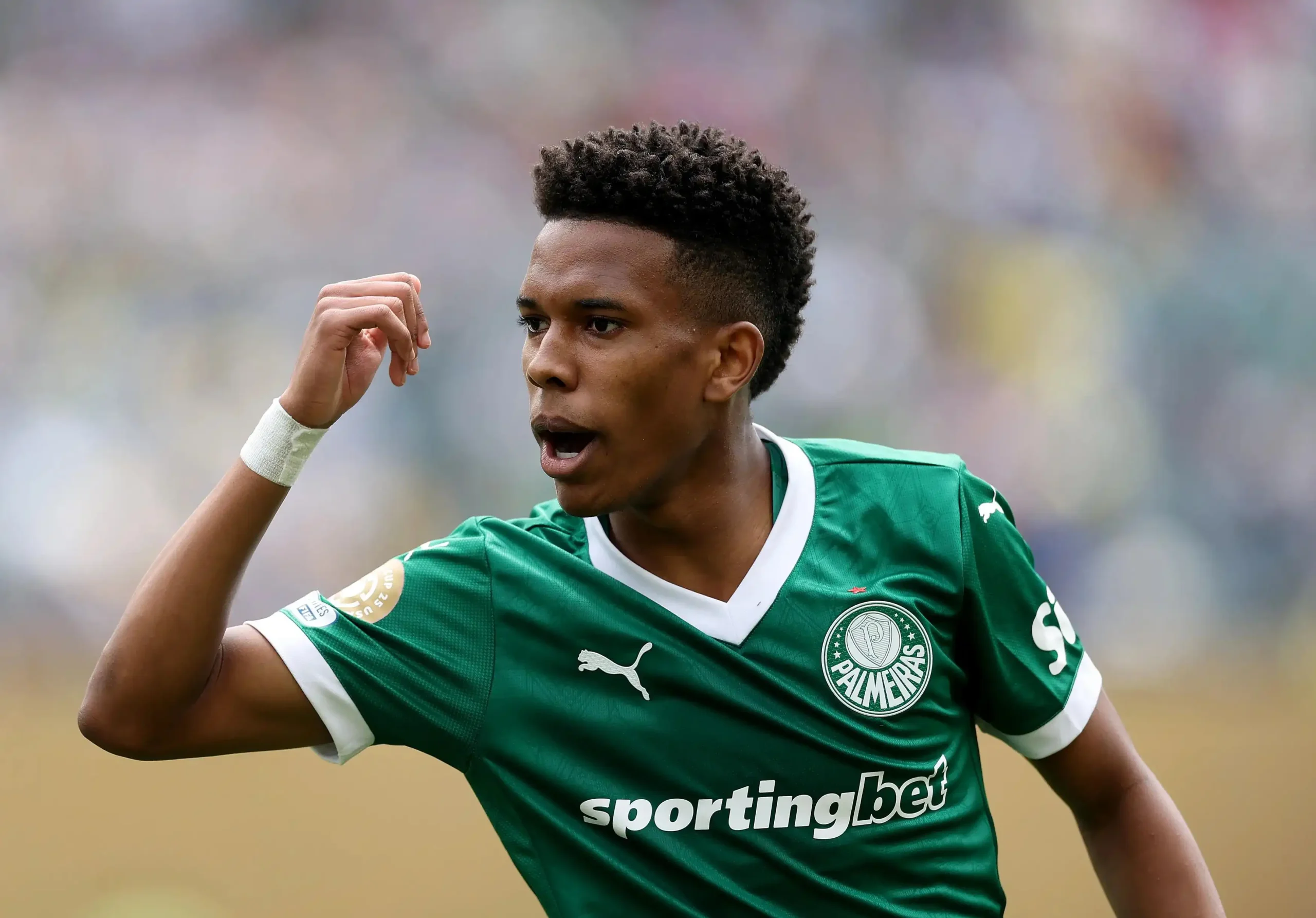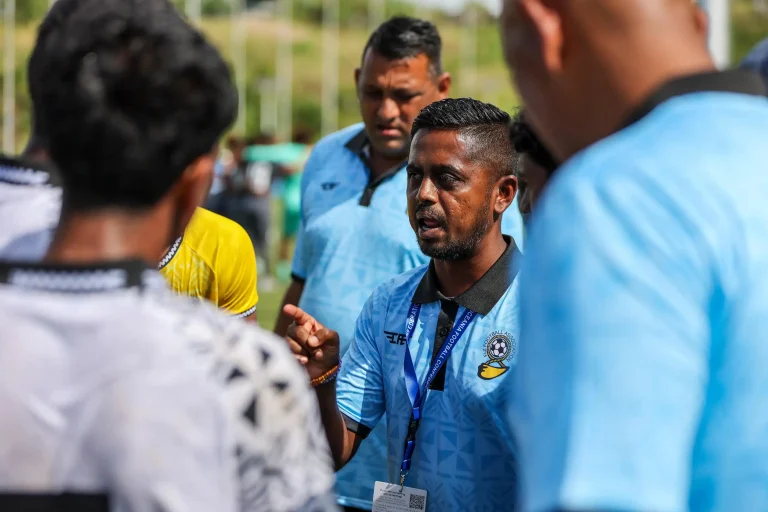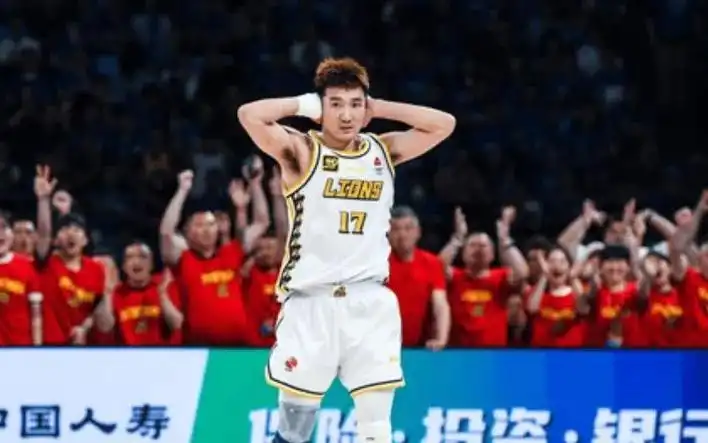There are several pitches at the Palmeiras academy’s training complex in Guarulhos, on the outskirts of Sao Paulo. One of them, however, is a little different: a dirt pitch surrounded by a fence to prevent the ball from going out and, most importantly of all, no coaches are allowed to set foot on it.
Buy tickets to watch the FIFA Club World Cup 2025 live
At the entrance, two signs convey its purpose: “No coaches. Mentors only,” the first one reads. “A space for freedom, improvisation and autonomy,” says the other.
The latter message certainly seems to have been taken to heart by Estevao, one of the brightest prospects to emerge from the Alviverde pipeline and a signature example of the free-spirited style that is preached in training.
And the 18-year-old attacking midfielder will be licking his lips at the opportunity to back up that message further this Friday, 4 July, when he will come up against his soon‑to‑be team-mates at Chelsea FC in the round of 16 at the FIFA Club World Cup 2025™. It will be an unusual situation for all parties: at the conclusion of the tournament in the USA, he will report to the London-based outfit as the latest Brazilian breakout star.
Naturally, Palmeiras will be looking to make the most of their No41 until the moment he departs, but prolonging his journey in green and white can only be accomplished at the expense of his next employers. In any event, the Verdão are fully aware of his game-changing quality.
“Estevao has the potential to become the best in the world,” Palmeiras youth academy coordinator Joao Paulo Sampaio told FIFA. “He’s something special. He’s the whole package, isn’t he? He’s got end product to go with his natural ability, he loves finding the net and he’s a great person and professional.”
The budding sensation has already shown flashes of brilliance at the groundbreaking global showpiece and has been voted Michelob ULTRA Superior Player of the Match twice to date, none of which will have come as a surprise to Palmeiras given the club’s youth development work.
One standout statistic puts that work into sharp focus. Of the five youngest players to have turned out for Brazil, two of them are the product of the revolutionary Alviverde academy, namely Endrick (17 years and 118 days in 2023) and Estevao himself (17 years and 135 days last year). The other three? Pele (16 years and 257 days in 1957), Edu (16 years and 303 days in 1966) and Coutinho (17 years and 28 days in 1960).
What’s more, over the past few years Palmeiras have sold the likes of Estevao (EUR 61.5 million), Endrick (to Real Madrid C. F. for EUR 60 million), Vitor Reis (to Manchester City for EUR 35 million), Luis Guilherme (to West Ham United for EUR 30 million) and Danilo (to Nottingham Forest for EUR 20 million) to European heavyweights – with all of those transfer fees including add-ons.
It is no coincidence, then, that so many giants of the European game keep knocking on the club’s door.
The bedrock of the youth academy at Palmeiras is clear for all to see. These days, there are certain types of players that you can immediately identify having come off the club’s production line, just by watching them play.
“Palmeiras-produced players are moulded for all markets, mainly because of their versatility,” Sampaio explains. “It’s mandatory here for everyone to be able to play at least three positions by the time they graduate from the academy.”
“Estevao, for example, plays as a 10, but also on either wing,” he continued. “He’s played in all three positions. The same is true of Vitor Reis. He was a midfielder, then moved back into defensive midfield and then to centre-back.
“We see Palmeiras as being like a school. You have to learn as much as possible so that when you go to university you can decide your profession.”
With their talent factory in full swing, Palmeiras are trying to achieve their mission at a time when Brazilian football is being criticised for no longer producing talent as it has done in years gone by.
“Instead of criticising, we went in search of answers,” said Sampaio. “People get nostalgic about the past, but nobody does anything to improve the situation. The people who feel nostalgic are often parents who don’t find the time to play football with their children.
Watch live matches for free on DAZN
“What we are trying to do, therefore, is to help these younger generations regain their autonomy,” he added. “And how do we go about doing that? When they go out and play on that dirt pitch at our training ground, they are free, they don’t wear boots and there’s no one to judge or coach them. We also have our favela project, where each day a Palmeiras youth team train on a community pitch and, on that particular day, the coach intervenes as little as possible.
“Between dribbling or passing the ball, we want them to choose dribbling,” said Sampaio. “We want them to go back to their street football origins. That’s what this generation has lost: playing just for the fun of it. Today’s generation lacks resilience and has nowhere to play on the streets due to the violence afflicting the country.”
That philosophy has helped make Palmeiras the most successful team in Brazil over the past five years.
In that time, they have won two CONMEBOL Copa Libertadores crowns (2020 and 2021), one Recopa Sudamericana (2022), two Brazilian league titles (2022 and 2023), one Copa do Brasil (2020) and four Campeonato Paulista state championships (2020, 2022, 2023 and 2024).
The last time Palmeiras fielded a side with no home-grown players was on 15 January 2021. Meanwhile, in addition to Estevao, the powerhouse from Sao Paulo have given minutes to midfielder Allan, forward Luighi and left-back Vanderlan at the global extravaganza currently taking place in the USA.
Even though the club does an excellent job when it comes to developing players, a bit of luck always plays a part in identifying talent early, especially in today’s world, when there is competition amongst clubs both at home and abroad. Palmeiras therefore always act boldly and are renowned for their aggressive recruitment policy.
It was through a WhatsApp video, for example, that the team found Endrick, now at Real Madrid. Nottingham Forest’s Danilo was identified thanks to a tip from a bus driver who saw him play.
“The club is very accessible, meaning we don’t have a lot of red tape,” explained Sampaio. “If we have to make mistakes, then we’ll do so by going for broke.
“On the other hand, there are lots of clubs out there where everything is analysed to death,” he added. “It’s still the same game. It’s 11 v 11, and the ball is still round. It’s only the philosophy, speed and compactness of the game that have changed.
“Will technology help? It helps being able to share videos. But what about [player] data? That depends. What I want to see is that [the player] is open to making mistakes, but when they get it right, they score. The problem is that today there are too many cooks in the kitchen: directors, coaches, fitness trainers and all sorts of analysts. But it’s still the players’ game.”



